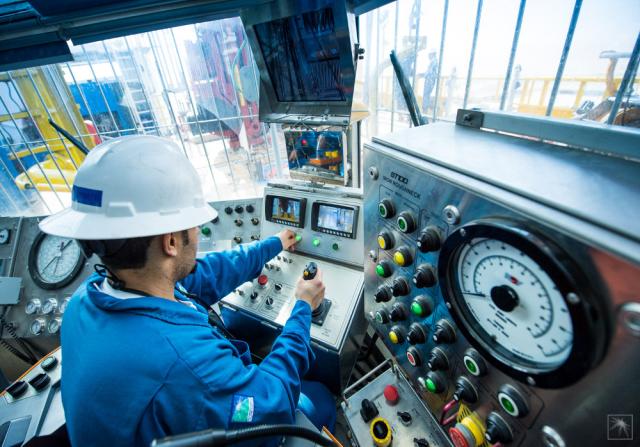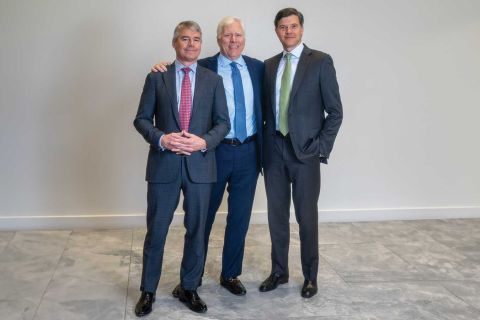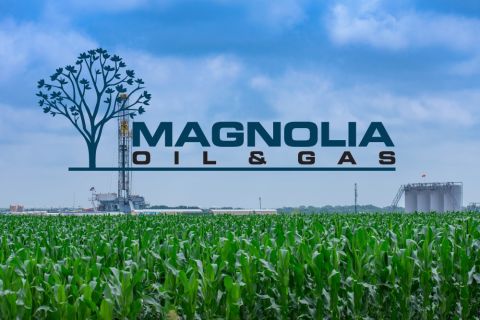
Saudi Aramco plans to venture overseas to extract hydrocarbon resources. (Source: Saudi Aramco)
Saudi Arabia plans to develop an international energy E&P business for the first time, doubling down on oil and gas despite the kingdom’s ambitions to curb its reliance on hydrocarbons.
Khalid al Falih, Saudi Arabia’s energy minister and chairman of state oil company Saudi Aramco, told the Financial Times that overseas expansion would be a critical part of the company’s future.
“We are no longer going to be inward-looking and focused only on monetizing the kingdom’s resources,” Falih said. “Going forward the world is going to be Saudi Aramco’s playground.”
While Saudi Aramco is the world’s largest oil-producing company, it has never meaningfully ventured overseas to extract resources, relying instead on its vast domestic reserves.
Falih said it was “correct” to say the company now has ambitions to become an international energy player like Royal Dutch Shell (NYSE: RDS.A) or Exxon Mobil Corp. (NYSE: XOM), pumping oil as well as gas overseas.
Despite ambitious reforms driven by Mohammed bin Salman, the Saudi crown prince, to wean the kingdom off what he has called its “dangerous addiction to oil,” Falih mapped out Saudi Arabia’s plans to invest more in the sector that has underpinned its traditional economy.
The move underscores how Saudi Arabia is likely to remain dependent on its oil and gas prowess for raising revenues as it struggles to diversify into new sectors such as technology, tourism, health care and mining.
The kingdom and Russia are leading global producers to curb supply to support oil prices after they fell by 40 per cent in late 2018. Crude is now hovering near $60 a barrel, while Saudi Arabia’s budget requires levels closer to $80.
Falih said in March the kingdom would reduce production to near 9.8 million barrels per day (MMbbl/d), from above 11 MMbbl/d in November. Exports would also fall to near 6.9 MMbbl/d, down from 8.2 MMbbl/d three months ago.
Brent crude, the international benchmark, rose $1.82 per barrel to $63.34 after the FT reported the minister’s production outlook, though prices came off their highs later in the trading day.
Falih said oil and gas, which has dominated the Saudi economy for decades, would ultimately still make up at least 40% to 50% of the kingdom’s revenues even if reforms took hold.
While the kingdom has invested abroad in refineries and petrochemicals, Falih’s remarks are the clearest sign yet of its intention to develop oil and gas extraction projects overseas.
The minister indicated that efforts would initially be focused on creating a “global gas” business. Many of the world’s energy majors are increasingly investing in gas, as the growth of demand is outpacing oil.
Saudi Arabia has eyed investments in Russia’s LNG sector and is in talks about taking a stake in export facilities in the U.S. But Falih also mentioned Australia as a possible investment destination.
He compared Saudi Aramco’s E&P capabilities favorably with its global peers, saying: “We can stand shoulder to shoulder with anyone and outdo them.”
Saudi Aramco caught the attention of the international financial community when Prince Mohammed revealed plans to sell shares in the state energy company through a stock market listing.
People familiar with the plans for the flotation have said it has been indefinitely postponed. But Falih was adamant that its expansion plans reflected a need to please potential outside shareholders.
“If I have investors from New York or London or Tokyo that are investing in Saudi Aramco, they want Saudi Aramco to be competing with the world’s best international oil companies,” he said.
Hurdles for what would have been the world’s largest IPO included an inability to achieve the $2 trillion valuation Prince Mohammed had sought, regulatory concerns and worries about legal exposure.
The kingdom’s powerful sovereign wealth fund was due to be the main recipient of the $100 billion that Riyadh expected to raise from the flotation. In its absence, Saudi Aramco has been instructed to acquire the fund’s 70% stake in Saudi petrochemicals maker Sabic. Saudi Aramco will issue a bond to partly pay for the $70 billion Sabic deal, with an investor roadshow due to start imminently, Falih said.
The move enables the PIF to raise cash quickly at a time when finance ministry handouts have shrunk. The Saudi economy has reeled from the aftermath of the 2014 oil price crash, which ushered in years of austerity measures.
As the kingdom struggled with a slowdown, the death of journalist Jamal Khashoggi last year sparked its biggest diplomatic crisis with the west since the Sept. 11, 2001, attacks in the U.S. Riyadh blamed rogue operatives for carrying out Khashoggi’s killing at its consulate in Istanbul and has put 11 Saudis on trial for the attack.
“Obviously there is something of a cloud that was created by this tragic and unfortunate incident,” said Falih. “[But] nobody is shying away. … I would dispel that notion that people are avoiding investing in Saudi Arabia.”
His comments come despite signs officials are concerned about the ability of Saudi Arabia to attract foreign capital and expertise to drive forward reforms.
The kingdom faces shorter term challenges, including its relationship with the U.S., its oldest and most important ally. President Donald Trump has backed Saudi Arabia through the Khashoggi affair but has long harbored animosity towards the Saudi-led OPEC oil producers group.
Legislation that would make it possible for the U.S. government to prosecute OPEC member countries for manipulating oil prices is moving forward in Congress and is thought to have one of the best chances yet of becoming law.
Falih said he trusted the U.S. to “do the right thing” and warned that the legislation could be “harmful” for the global economy. The world would suffer “irreparably” from the loss of Saudi Arabia’s ability to quickly raise or cut oil production to balance the market.
Recommended Reading
Petrie Partners: A Small Wonder
2024-02-01 - Petrie Partners may not be the biggest or flashiest investment bank on the block, but after over two decades, its executives have been around the block more than most.
Chesapeake Slashing Drilling Activity, Output Amid Low NatGas Prices
2024-02-20 - With natural gas markets still oversupplied and commodity prices low, gas producer Chesapeake Energy plans to start cutting rigs and frac crews in March.
Matador Resources Announces Quarterly Cash Dividend
2024-04-18 - Matador Resources’ dividend is payable on June 7 to shareholders of record by May 17.
CEO: Coterra ‘Deeply Curious’ on M&A Amid E&P Consolidation Wave
2024-02-26 - Coterra Energy has yet to get in on the large-scale M&A wave sweeping across the Lower 48—but CEO Tom Jorden said Coterra is keeping an eye on acquisition opportunities.
CEO: Magnolia Hunting Giddings Bolt-ons that ‘Pack a Punch’ in ‘24
2024-02-16 - Magnolia Oil & Gas plans to boost production volumes in the single digits this year, with the majority of the growth coming from the Giddings Field.





